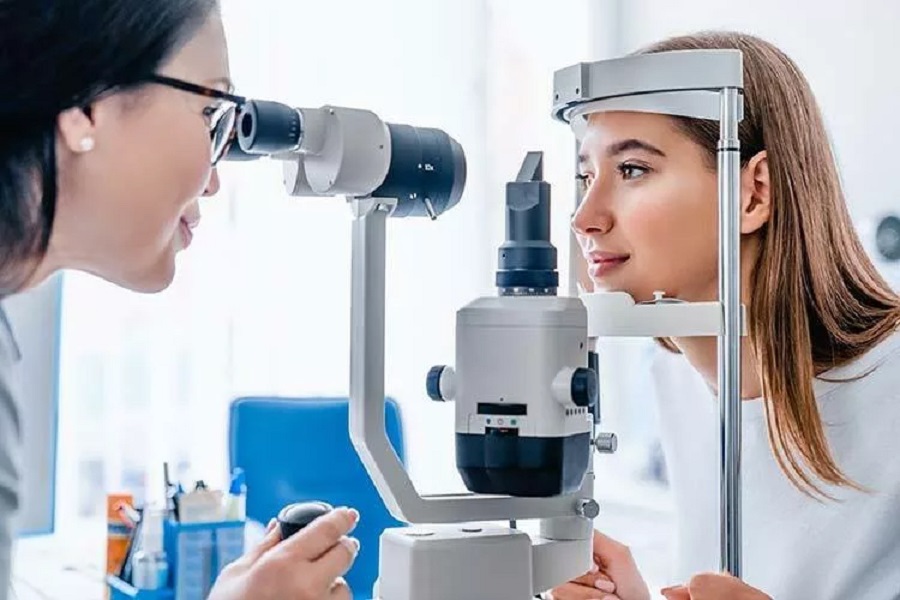Eye health is vital to your overall well-being, and when you’re faced with vision issues or need expert care, an ophthalmologist is often the go-to specialist. But how much does an ophthalmologist visit cost, and what distinguishes these professionals from optometrists? In this article, we’ll explore the differences between ophthalmologists and optometrists, the serious eye conditions they treat, and when it’s time to consult one. We’ll also guide you on finding an ophthalmologist in Louisville, Kentucky, and break down the costs you can expect.
What is the Difference Between an Ophthalmologist and an Optometrist?
Ophthalmologists and optometrists both specialize in eye care, but their training, roles, and scope of services differ significantly.
-
Ophthalmologists:
Ophthalmologists are medical doctors (MDs or DOs) who specialize in diagnosing, treating, and managing eye diseases. They undergo extensive training, including medical school, a residency in ophthalmology, and, in some cases, additional subspecialty training. Their services include performing surgeries (e.g., cataract or LASIK), treating chronic eye diseases (e.g., glaucoma), and prescribing corrective lenses. -
Optometrists:
Optometrists are doctors of optometry (ODs) who focus on primary vision care. They perform routine eye exams, prescribe corrective lenses, and manage minor eye conditions such as dry eye or conjunctivitis. However, for more complex conditions or surgeries, optometrists often refer patients to ophthalmologists.
Key Differences:
-
Ophthalmologists handle advanced treatments, surgeries, and chronic eye diseases, while optometrists focus on general eye care and vision correction.
-
Optometrists are typically your first contact for routine exams, but ophthalmologists are essential for specialized care.
-
Ophthalmologists’ broader medical training equips them for more complex cases.
What Are the Most Serious Eye Problems?
Several eye conditions can cause significant vision loss or long-term complications if left untreated. Here are some of the most serious:
-
Cataracts: A common condition where the eye’s lens becomes cloudy, leading to blurred vision and potential blindness if untreated.
-
Glaucoma: A group of eye diseases that damage the optic nerve, often caused by elevated eye pressure. Glaucoma can result in irreversible vision loss.
-
Macular Degeneration: Age-related degeneration of the central retina (macula) that impairs central vision, making tasks like reading and driving difficult.
-
Diabetic Retinopathy: Damage to the blood vessels in the retina caused by diabetes, leading to vision loss if not managed properly.
-
Retinal Detachment: A medical emergency where the retina separates from its underlying tissue, risking permanent blindness.
-
Uveitis: Inflammation of the middle layer of the eye (uvea), which can lead to severe pain, redness, and vision problems.
-
Corneal Conditions: Issues such as keratitis (infection) or corneal dystrophies can compromise vision clarity and comfort.
Many of these conditions progress gradually and without early symptoms, making regular eye exams essential for early detection.
Can an Ophthalmologist Detect These Conditions?
Yes, ophthalmologists are trained and equipped to diagnose and treat all serious eye conditions. They use advanced diagnostic tools to identify underlying problems early and develop appropriate treatment plans.
Common Diagnostic Tools:
-
Slit Lamp Examination: Examines the front structures of the eye, such as the cornea, lens, and iris.
-
Dilated Eye Exam: Uses eye drops to widen the pupil, providing a detailed view of the retina and optic nerve.
-
Tonometry: Measures eye pressure to detect glaucoma.
-
OCT (Optical Coherence Tomography): Creates detailed cross-sectional images of the retina for conditions like macular degeneration or diabetic retinopathy.
-
Fundus Photography: Captures high-resolution images of the retina and optic nerve for analysis.
With these tools, ophthalmologists can catch conditions early, preventing further damage and preserving vision.
When Should You Consult an Ophthalmologist?
Knowing when to see an ophthalmologist is crucial for maintaining long-term eye health. While routine exams with an optometrist are sufficient for many people, certain symptoms or conditions require the expertise of an ophthalmologist.
When to See an Ophthalmologist:
-
Sudden Vision Changes: Blurred vision, loss of vision, or flashes of light could indicate serious issues like retinal detachment.
-
Eye Pain or Redness: Persistent discomfort or inflammation may signal infections, uveitis, or other conditions requiring medical attention.
-
Chronic Conditions: If you have diabetes, a family history of glaucoma, or other risk factors, regular visits to an ophthalmologist are essential.
-
Surgical Needs: For procedures like cataract removal, LASIK, or retinal repair, you’ll need an ophthalmologist.
-
Age-Related Concerns: People over 60 should schedule regular eye exams to monitor for conditions like cataracts or macular degeneration.
Is There an Ophthalmologist in Louisville, Kentucky?
Yes, Louisville, Kentucky, is home to a wide range of highly qualified ophthalmologists who cater to routine and specialized eye care needs. Whether you require a routine check-up or advanced treatment for conditions like glaucoma or cataracts, there are reputable clinics and professionals available.
Finding an Ophthalmologist in Louisville:
-
Use online directories such as Healthgrades or Zocdoc.
-
Check your insurance provider’s network for in-network ophthalmologists.
-
Ask for referrals from your optometrist or primary care doctor.
Many clinics in Louisville also offer advanced diagnostic tools and state-of-the-art surgical options, ensuring comprehensive care for patients.
How Much Does an Ophthalmologist Visit Cost?
The cost of an ophthalmologist visit can vary widely based on factors such as location, the type of service required, and whether you have insurance.
Typical Costs:
-
Routine Eye Exam: $150–$250 without insurance. Vision insurance can reduce this cost to a co-pay of $10–$50.
-
Diagnostic Tests: Specialized tests like OCT scans or fundus photography can add $50–$200 per test.
-
Consultation for Surgery: A pre-surgical consultation typically costs $200–$300. The surgery itself may range from:
-
Cataract Surgery: $3,500–$5,000 per eye.
-
LASIK: $2,000–$3,000 per eye.
-
-
Emergency Visits: Costs for acute issues, such as retinal detachment, can range from $250–$500 depending on the complexity of the case.
Insurance Coverage:
Most health insurance plans cover medically necessary ophthalmologist visits, such as those for glaucoma or cataracts. Vision insurance often covers routine eye exams and corrective lenses but may not extend to medical treatments or surgeries.
For Uninsured Patients:
Many clinics offer payment plans or sliding-scale fees based on income, making care more accessible.
Conclusion
Ophthalmologists are vital for diagnosing, treating, and managing serious eye conditions that could threaten your vision. While optometrists are essential for routine exams and vision correction, ophthalmologists provide the advanced care needed for complex or chronic issues.
The cost of an ophthalmologist visit depends on the type of care you need, but early detection and treatment can save you from more expensive and invasive procedures later. If you’re in Louisville, Kentucky, finding a qualified ophthalmologist is straightforward, with numerous clinics offering comprehensive care.
Prioritize your eye health by scheduling regular exams and seeking immediate help if you experience concerning symptoms. Your vision is worth the investment!





